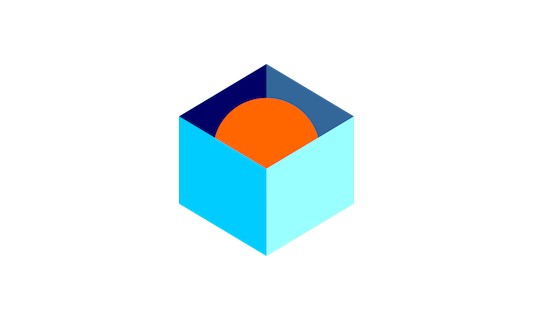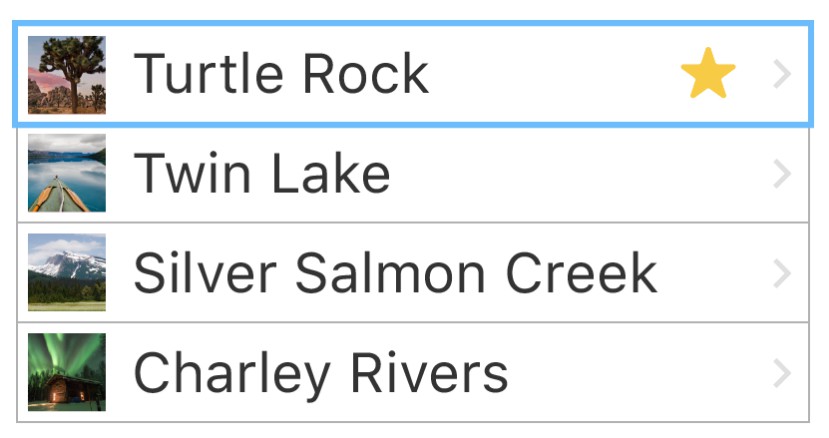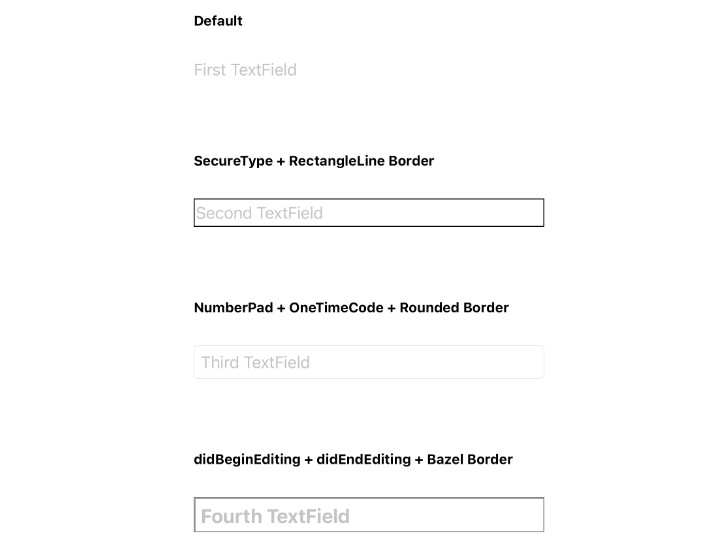Impose
Impose is a simple dependency injection library for Swift.
Requirements
- Swift 5.0 or higher (or 5.3 when using Swift Package Manager)
- iOS 9.3 or higher (or 10 when using Swift Package Manager)
Only Swift Package Manager
- macOS 10.10 or higher
- tvOS 10 or higher
Installation
Cocoapods
Impose is available through CocoaPods. To install it, simply add the following line to your Podfile:
pod 'Impose'
Swift Package Manager from XCode
- Add it using xcode menu File > Swift Package > Add Package Dependency
- Add https://github.com/nayanda1/Impose.git as Swift Package url
- Set rules at version, with Up to Next Major option and put 1.2.0 as its version
- Click next and wait
Swift Package Manager from Package.swift
Add as your target dependency in Package.swift
dependencies: [
.package(url: "https://github.com/nayanda1/Impose.git", .upToNextMajor(from: "1.2.3"))
]
Use it in your target as Impose
.target(
name: "MyModule",
dependencies: ["Impose"]
)
Author
Nayanda Haberty, [email protected]
Basic Usage
Impose is very easy to use and straightforward, all you need to do is provide some provider for dependency:
Imposer.impose(for: Dependency.self, SomeDependency())
and then use it in some of your class using property wrapper or using global function
class InjectedByPropertyWrapper {
@Injected var dependency: Dependency
...
...
}
class InjectedByInit {
var dependency: Dependency
init(dependency: Dependency = inject()) {
self.dependency = dependency
}
}
the provider is autoClosure type, so you can do something like this:
Imposer.impose(for: Dependency.self) {
dependency: SomeDependency = .init()
dependency.doSomeSetup()
return dependency
}
the provider automatically just create one instance only from calling closure and reused the instance, so the closure only called once. If you want the provider to call closure for every injection, you can just pass option:
Imposer.impose(for: Dependency.self, option: .closureBased, SomeDependency())
or if you want to set it to single instance explicitly:
Imposer.impose(for: Dependency.self, option: .singleInstance, SomeDependency())
Don't forget that it will throw uncatchable Error if the provider is not registered yet. If you want to catch the error manually, just use tryInject instead:
class InjectedByInit {
var dependency: Dependency
init(dependency: Dependency? = nil) {
do {
self.dependency = dependency ?? try tryInject()
} catch {
self.dependency = DefaultDependency()
}
}
}
Optional Inject
Sometimes you just don't want your app to be throwing error because of failure in dependency injection. At those cases, just use @UnforceInjected attribute or unforceInject function. It will return nil if injection fail:
```swift
class InjectedByPropertyWrapper {
@UnforceInjected var dependency: Dependency?
...
...
}
class InjectedByInit {
var dependency: Dependency
init(dependency: Dependency? = unforceInject()) {
self.dependency = dependency
}
}
No Match Rules
If the Imposer did not found exact type registered but multiple compatible type, it will use the nearest one to the requested type. Like in this example:
protocol Dependency {
...
...
}
class NearestToDependency: Dependency {
...
...
}
class MidwayToDependency: MyDependency {
...
...
}
class FurthestToDependency: YourDependency {
...
...
}
so if you provide dependency like this:
Imposed.impose(for: NearestToDependency.self, NearestToDependency())
Imposed.impose(for: MidwayToDependency.self, MidwayToDependency())
Imposed.impose(for: FurthestToDependency.self, FurthestToDependency())
and you try to get injected Dependency protocol which Imposer already have three candidate for that, by default Imposer will return NearestToDependency since its the nearest one to Dependency:
class MyClass {
// this will be NearestToDependency
@Injected var dependency: Dependency
}
but if you want to get other dependency, you could pass InjectionRules:
- nearest which will return the nearest one found
- furthest which will return the furthest one found
- nearestAndCastable same like nearest, but will using type casting too when searching dependency
- furthestAndCastable same like furthest, but will using type casting too when searching dependency
class MyClass {
// this will be NearestToDependency
@Injected var dependency: Dependency
// this will be FurthestToDependency
@Injected(ifNoMatchUse: .furthest) var furthestDependency: Dependency
}
it can apply to the inject function too:
// this will be NearestToDependency
var dependency: Dependency = inject()
// this will be FurthestToDependency
var furthestDependency: Dependency = inject(ifNoMatchUse: .furthest)


